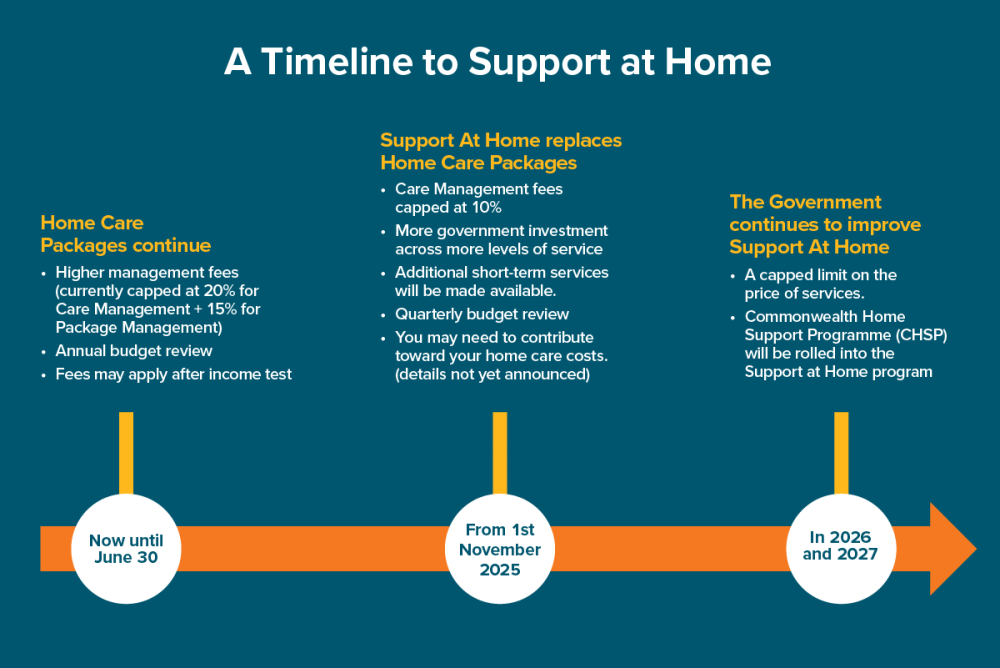Practical steps to communicate your needs to a support at home provider
Practical steps to communicate your needs to a support at home provider
Blog Article
Everything About Home Care Services for People With Disabilities: NDIS Registered Support
Home care solutions under the NDIS play a pivotal function in supporting individuals with impairments. These services are made to boost daily living with tailored help, ranging from personal like wheelchair support. Comprehending how to navigate these alternatives can be complicated. This review checks out the various elements of NDIS home treatment, from readily available solutions to the option of companies, highlighting crucial considerations for those looking for assistance. The journey toward empowered treatment begins here.
Comprehending the NDIS and Its Objective
The National Special Needs Insurance System (NDIS) serves as a transformative structure designed to provide support and services for individuals with impairments. Developed to improve the lifestyle and assurance fair access to important resources, the NDIS encourages participants by providing personalized strategies tailored to their distinct requirements. It intends to foster freedom, enabling individuals to pursue their individual objectives and aspirations.Through an organized approach, the NDIS allocates financing for different assistances, including education, work support, and area involvement. This all-inclusive plan not just focuses on instant care but additionally stresses lasting developmental results. By advertising option and control, the NDIS motivates individuals to select their recommended solution suppliers, assuring that care lines up with their values and preferences. Eventually, the NDIS stands for a considerable dedication to enhancing the lives of individuals with impairments, cultivating inclusivity, and constructing a more helpful society.
Kinds Of Home Treatment Solutions Available
Numerous types of home care solutions accommodate individuals with disabilities, primarily concentrating on personal treatment support and break treatment options. Individual care assistance gives crucial support with daily activities, while break treatment offers momentary relief for primary caretakers. Recognizing these services is crucial for guaranteeing the health of both people with impairments and their households.
Personal Treatment Support
While maneuvering every day life can offer challenges for people with disabilities, personal care aid uses important assistance tailored to their one-of-a-kind requirements. This type of home care solution encompasses a series of tasks created to promote freedom and enhance lifestyle. Personal treatment assistants aid with day-to-day tasks such as bathing, clothing, brushing, and toileting, ensuring individuals maintain personal hygiene and comfort. They may additionally aid with dish preparation, drug administration, and flexibility assistance. By giving individualized care, these experts equip individuals to engage even more totally in their social tasks and everyday regimens. Generally, individual treatment help plays a substantial function in cultivating self-respect and autonomy for those with disabilities, permitting them to prosper in their home environment.

Break Treatment Options
Respite treatment acts as an important resource for households and caregivers of individuals with specials needs, providing temporary remedy for the needs of daily caregiving. This type of service can take various forms, consisting of in-home respite treatment, where skilled specialists go to the home to assist with treatment tasks. Families might choose for facility-based break care, where people obtain treatment in a specific atmosphere, allowing caretakers to take a break. Additionally, some organizations supply emergency reprieve solutions for unanticipated conditions. These options not only assist reduce caregiver anxiety but likewise advertise the well-being of individuals with impairments by offering them brand-new experiences and social interaction. In general, respite treatment plays an essential role in supporting both caregivers and those they take care of.

Exactly How to Gain Access To NDIS Home Treatment Services
Accessing NDIS home treatment solutions involves recognizing the eligibility requirements set forth by the National Impairment Insurance Scheme. People must browse a structured application procedure to secure the necessary assistance tailored to their demands. This area will certainly make clear both the eligibility demands and the steps entailed in looking for solutions.
Qualification Standards Clarified
To get approved for NDIS home care solutions, people should fulfill certain eligibility standards that analyze their demands and circumstances. Initially, candidates must be aged between 7 and 65 years and have a irreversible and substantial handicap that influences their capability to execute moved here everyday tasks. In addition, they must be an Australian resident, a permanent local, or hold a Protected Unique Group Visa. The NDIS requires proof of the disability, commonly with clinical analyses or records. People ought to show that they need assistance to take part in social and economic life. These requirements ensure that solutions are guided towards those who genuinely need help, advertising freedom and enhanced quality of life for individuals with disabilities.
Application Process Steps
Can I Choose My Own Support Employees With NDIS?
The private asked whether they might pick their own support workers under the NDIS framework. Usually, participants have the versatility to choose assistance employees, fostering customized care that straightens with their certain requirements and preferences.
What Occurs if My Requirements Change After Obtaining Assistance?
If an individual's demands change after obtaining assistance, they must connect these adjustments to their provider. Adjustments can be made to the care strategy, making certain that the assistance stays relevant and effective for their situations.

Exist Restricts on The Number Of Hours of Care I Can Get?
The individual asked about potential restrictions on the number of treatment hours received. Generally, such restrictions might exist based on specific plans or moneying arrangements, stressing the relevance of evaluating contracts and standards on a regular basis.
Can I Use NDIS Funding for Home Adjustments?
The concern of using funding for home modifications arises frequently. Normally, individuals might make use of NDIS financing for needed adjustments to their homes, making certain availability and safety, section upon conference certain eligibility standards and guidelines.
Just how Do I Manage Grievances Regarding My Home Treatment Services?
To address issues concerning home care solutions, people must first document their issues. They can connect directly with their service supplier, looking for resolution, or escalate the issue to pertinent oversight bodies if necessary. Home care solutions under the NDIS play an essential function in sustaining people with specials needs. Numerous kinds of home care solutions provide to individuals with disabilities, mostly concentrating on personal treatment help a knockout post and break treatment choices. support at home provider. Personal care support offers crucial support with day-to-day activities, while break care uses short-term alleviation for primary caretakers. Family members might choose for facility-based break treatment, where people obtain treatment in a specialized environment, allowing caretakers to take a break. Just how can family members efficiently manage the monetary aspects of home care solutions for individuals with handicaps?
Report this page